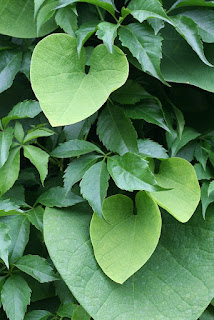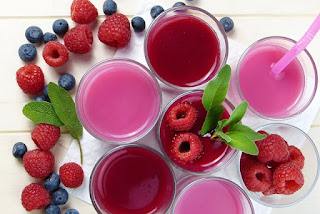Properly Managed Organic Farms Changes the World
Organic Farming Properly Managed
 |
| Image by lumix2004 by Pixabay |
Vilicus Farms is an organic farm in Montana own by the Crabtrees. A farm that stands out due to its lack of erosion (which was tough to achieve in the first place due to the area they are in), no use of herbicides, very little tilling, excellent nutrient management, pollinators, carbon sequestration, and clean water (Carlisle 189-190). Its safe to say the food that comes from this farm is definitely clean and at higher standards than many of the farms throughout the United States. Farms like this distribute genuine organic food to markets throughout the country and help people eat cleanly.
Chemical Farming Is Harmful for the World
 |
| Image by Arturs Budkevics from Pixabay |
Chemical farming has widespread unsanitary conditions that exist within the industrial agriculture leading to foodborne illnesses and E. coli outbreaks with both the cattle and crops (Rodale 51). Organic farming is more connected with nature, treating it with respect, while the chemical farms have more of a controlling nature and disconnecting itself from nature (Rodale 137). GMOs are created within chemical farms taking that natural foundation of the product and genetically modifying it for their own personal gain instead of keeping the integrity of the product which is healthier for humans to eat.
Improperly managed organic farms are better to eat then well managed chemical farms in my opinion. These farms still are legal to distribute food however they are unable to label the food as organic.
Here is the USDA Organic Integrity Database highlighting suspended and revoked organic farms along with farms that passed government inspections and are certified organic.
Organic Food Sales Continue to Rise
 |
| Image by Victoria Model by Pixabay |
As of 2013 organic sales reached 35 billion dollars (Faruqi 9). In 2021 organic sales reached over 57.5 billion dollars which experienced a 2% growth from the previous year (Morrison). After 8 years, the organic food industry experienced a 22.5 billion dollar increase in organic sales. Definitely an industry that is experiencing continuous growth year after year with no foreseeable end in sight.
Urban Farming
 |
| Image by MOM by Pixabay |
You don't need to live on an extravagant farm or own a huge lot of land to grow your own produce. Backyard farming has been around forever. You might be surprised as to what you can grow right in your backyard. In your backyard you can use containers with growing mixes to grow vegetables like (Caswell)
- Beets
- Carrots
- Eggplants
- Leafy Greens
- Lettuce
- Kale
- Onions
- Strawberries
Many countries grow nearly all their food in cities (Rissman). I figured all countries grew the majority of crops in rural areas like in the United States.
Making A Plan is Very Very Important
 |
| Image by Pexels from Pixabay |
Regardless of whether your planting crops on a farm, or backyard farming, you need to gather enough information as you can and have a plan. Prepare to know how much soil you need, be prepared for weather changes, seeds, irrigation, etc. You basically should have everything planned out as if you were caring for the plants every day until it's time to harvest them. Instead of just having a partial plan that is unprepared for even the minute details.
Earths Soil Mirrors the Human Skin
 |
| Image by innca by Pixabay |
The soil is the health of the farm which also mirrors our skin since each have three major layers and a top protective layer of dead cells (Miller 200). Why not eat foods that come from the ground which have minerals and vitamins that our bodies are made of and is needed for perfect health.
The Crisis with Genetically Modified Organisms (GMOs)
 |
| Image by James Farley from Pixabay |
So much fast food is genetically engineered inside a laboratory. Most of the genetically modified organisms lose many of their natural benefits for the body during the modification process. GMOs have many unnatural ingredients like High Fructose Syrup added to it. Those types of ingredients bring harm to the body causing things like cancer and upsetting the body's natural balance. Farms that use chemicals and pesticides have widespread sanitation problems leaving food contaminated.
We have to change the food system which causes 100's of thousands of deaths a year contributing to an obesity crisis, wasted energy, tortures billions of animals, poisons the water and land, is harmful to the climate, and has gotten to the point where changing the food system is essential for saving ourselves and the earth (Bittman 233).
People who eat good feel better. Your mentally better because you know you're not putting your body in harm's way. This good feeling translates into your sexual health, your job, parenting, friendships and a whole host of other areas. This change is addictive however it is tough to initially change because your diet becomes so addictive growing up eating all of the GMOs as an everyday diet.
Environmental Government Programs That Work
 |
| Image by peggychoucair from Pixabay |
Government programs help farmers manage the land better. USDA Environmental Quality Incentives Program was used to convert a triangle part of farming land (making it difficult to turn field equipment on) into a rotational grazing paddock for farmers cattle and the Conservation Reserve Program pays a rental fee for erosive acres blanketed in perennial vegetation (Carlisle). These programs help farmers keep their land instead of selling it along with preserving the eco system. Preserving the farming areas currently in existence avoids a serious issue of farming expansion. Expansion leads to wetlands being drained, endangering birds, plant species, wild rice, to name a few (Bowden 7).
If chemical farming could change to organic farming the food supply would be rid of those harmful illnesses and diseases associated with chemical farming. If the world's food supply came from well managed organic farms, then it would have a perfect food supply system. I know it seems like wishful thinking, but it's definitely 100% possible.
Works Cited
Carlisle, Liz. Lentil Underground : Renegade Farmers and the Future of Food in America. New York, New York, Gotham Books, 2015.
Barker, Allen V. Science and Technology of Organic Farming. S.L., Crc Press, 2021.
Caswell, Deanna, and Daisy Siskin. Little House in the Suburbs : Backyard Farming and Home Skills for Self-Sufficient Living. Cincinnati, Ohio, Betterway Home, 2012.
Rodale, Maria. Organic Manifesto : How Organic Farming Can Heal Our Planet, Feed the World, and Keep Us Safe. Emmaus, Rodale, 2011.
Faruqi, Sonia. Project Animal Farm. Simon and Schuster, 15 July 2015.
Morrison, Krystle. “Organic Food Sales up 2% in 2021.” Food Industry Executive, 10 June 2022, foodindustryexecutive.com/2022/06/organic-food-sales-up-2-in-2021/. Accessed 22 Nov. 2022.
Miller, Daphne. Farmacology : Total Health from the Ground Up. New York, Ny, William Morrow, An Imprint Of Harpercollinspublishers, 2016.
Bittman, Mark. A Bone to Pick : The Good and Bad News about Food, along with Wisdom, Insights, and Advice on Diets, Food Safety, GMOs Policy, Farming, and More. New York, Clarkson Potter, 2015.
Bowden, Rob. Food and Farming. San Diego, Kidhaven Press, 2004.





Comments
Post a Comment